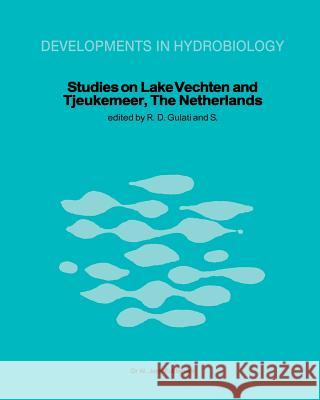Studies on Lake Vechten and Tjeukemeer, the Netherlands: 25th Anniversary of the Limnological Institute of the Royal Netherlands Academy of Arts and S » książka
Studies on Lake Vechten and Tjeukemeer, the Netherlands: 25th Anniversary of the Limnological Institute of the Royal Netherlands Academy of Arts and S
ISBN-13: 9789400980174 / Angielski / Miękka / 2011 / 384 str.
Studies on Lake Vechten and Tjeukemeer, the Netherlands: 25th Anniversary of the Limnological Institute of the Royal Netherlands Academy of Arts and S
ISBN-13: 9789400980174 / Angielski / Miękka / 2011 / 384 str.
(netto: 715,66 VAT: 5%)
Najniższa cena z 30 dni: 751,44 zł
ok. 16-18 dni roboczych.
Darmowa dostawa!
The Netherlands, like the other industrialized countries in the northern hemisphere, is faced with increas ing environmental pro blems. Being a country rich in water - at least in terms of surface area - and low-lying, problems related to water are as old as the nation itself. The problems in regard to water quality are becoming more acute and complicated due to the progressive rise in air and ground pollution. Glaring examples are the acid rains and contamination of ground-water resources by toxic, and often illegal, waste dumps. Being a delta country, the Netherlands is also very vulnerable to pollution from the.water sources outside the country's national boundaries, i.e. the rivers Rhine, Meuse and ScheIdt. Not only the national but also the international authorities are active in developing measures to both prevent and combat water pollution, and to restore as far as possible the natural balance or a 'reasonable' water quality. The pollution abatement programmes are based on ecological theories; accepting waterbodies as aquatic ecosystems, the authorities concerned try to influence and lead the progresses in the systems to reach or maintain the desired ecosystem structure. Suter II (1981) mentioned a number of reasons why the attempts to use ecosystem theories to assess the impacts on the environment have been disappointing to date. It is clear that one of the reasons for the failure is lack of proper knowledge."











